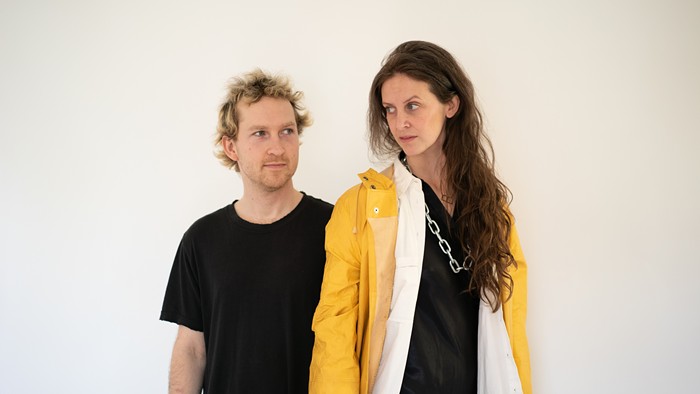Heather Duby
Thur Feb 19
Meow Meow
320 SE 2nd Ave
Though it's been five years since its release, Heather Duby's 1999 debut, Post to Wire, is still a splendid listen. The Seattle songwriter used her remarkable voice to deliver intimate, haunting, and uncontrived ruminations on love and loss over layered, autumnal trip-pop arrangements co-written and shaped by Pacific Northwest über-producer Steve Fisk.
There is, however, a vague sense throughout the album that Duby's vocals, and the synth-based atmosphere supporting them, don't always work in tandem. It sounds like she sang over the songs rather than within them, thereby lessening their emotional impact, albeit to a small degree. It's an observation worth noting in the context of her phenomenal follow-up, Come Across the River, which suffers from no such dichotomy. On each of these 10 compositions, Duby's rich and resonant pipes fully engage with instrumentation far removed from the electronic gauze of its predecessor--piano, cello, live-sounding drums and guitar propel the action here, with digital flourishes wisely kept to a minimum. Maybe that organic approach is the key, but Duby also demonstrates a tremendous growth in confidence, and temerity.
The dark edge she hinted at in earlier songwriting is greatly magnified on Come Across the River. Opener "Make Me Some Insomnia" initiates a descent into human-frailty hell with a portentous piano melody and the melancholy bowing of cellist Lori Goldston, while Duby sings wearily, "To rely on anyone is just like sinking for the fun of it." That cynical gloom carries over to the watery Goth-Gaelic ballad "Stamped Out," and is most acute in the stunning "The Rare Vavoom," a cabaret noir replete with brushed drums and muted trumpet that paints a nocturnal image of Duby staring forlornly out the rain-tapped window.
The clouds may rarely part, but Come Across the River showcases the most beautiful and cathartic kind of sadness, as well as an artist who is truly coming into her own.


















